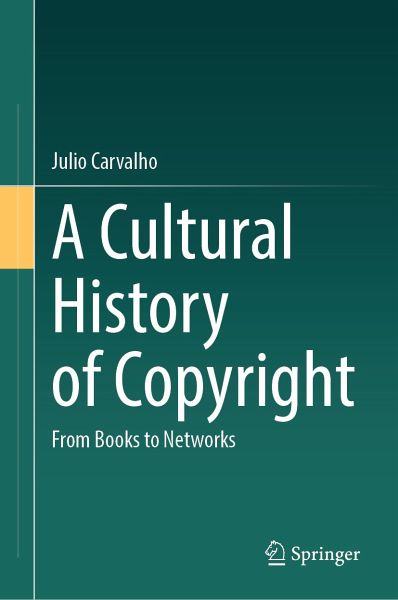
A Cultural History of Copyright (eBook, PDF)
From Books to Networks
Versandkostenfrei!
Sofort per Download lieferbar
104,95 €
inkl. MwSt.
Weitere Ausgaben:

PAYBACK Punkte
52 °P sammeln!
Combining philosophical and historical perspectives, this book focuses on the rise of a legal institution that has dominated the economy of knowledge ever since it burst onto the scene at the dawn of modernity in the heartlands of Europe. From the age of print to the age of networks and disruptive technologies, this book explores the place of copyright amid the various conceptual transformations it has undergone over time. Uniquely, it presents an in-depth philosophical treatment of the cultural history of copyright from its beginnings to the present.Although copyright is a central topic, the ...
Combining philosophical and historical perspectives, this book focuses on the rise of a legal institution that has dominated the economy of knowledge ever since it burst onto the scene at the dawn of modernity in the heartlands of Europe. From the age of print to the age of networks and disruptive technologies, this book explores the place of copyright amid the various conceptual transformations it has undergone over time. Uniquely, it presents an in-depth philosophical treatment of the cultural history of copyright from its beginnings to the present.
Although copyright is a central topic, the content is by no means limited to it. The main question the author seeks to answer is: how do legal institutions emerge and how do they evolve over time? Though copyright is a wonderful example for tackling this question, a selection of other institutions, such as the social practice of promising in eighteenth-century Britain, are also addressed at considerable length. What the author has managed to show in this book is that the transformations which modern law has undergone since the eighteenth century are inextricably linked to those which have shaped the modern subject to the core. Law forms part of those great schemes of intelligibility that allow us to understand ourselves better. We need to delve deep into the multiple layers of culture if we want to fully understand how the morphology and cultural archaeology of our legal institutions intertwine.
Although copyright is a central topic, the content is by no means limited to it. The main question the author seeks to answer is: how do legal institutions emerge and how do they evolve over time? Though copyright is a wonderful example for tackling this question, a selection of other institutions, such as the social practice of promising in eighteenth-century Britain, are also addressed at considerable length. What the author has managed to show in this book is that the transformations which modern law has undergone since the eighteenth century are inextricably linked to those which have shaped the modern subject to the core. Law forms part of those great schemes of intelligibility that allow us to understand ourselves better. We need to delve deep into the multiple layers of culture if we want to fully understand how the morphology and cultural archaeology of our legal institutions intertwine.
Dieser Download kann aus rechtlichen Gründen nur mit Rechnungsadresse in A, B, BG, CY, CZ, D, DK, EW, E, FIN, F, GR, HR, H, IRL, I, LT, L, LR, M, NL, PL, P, R, S, SLO, SK ausgeliefert werden.












